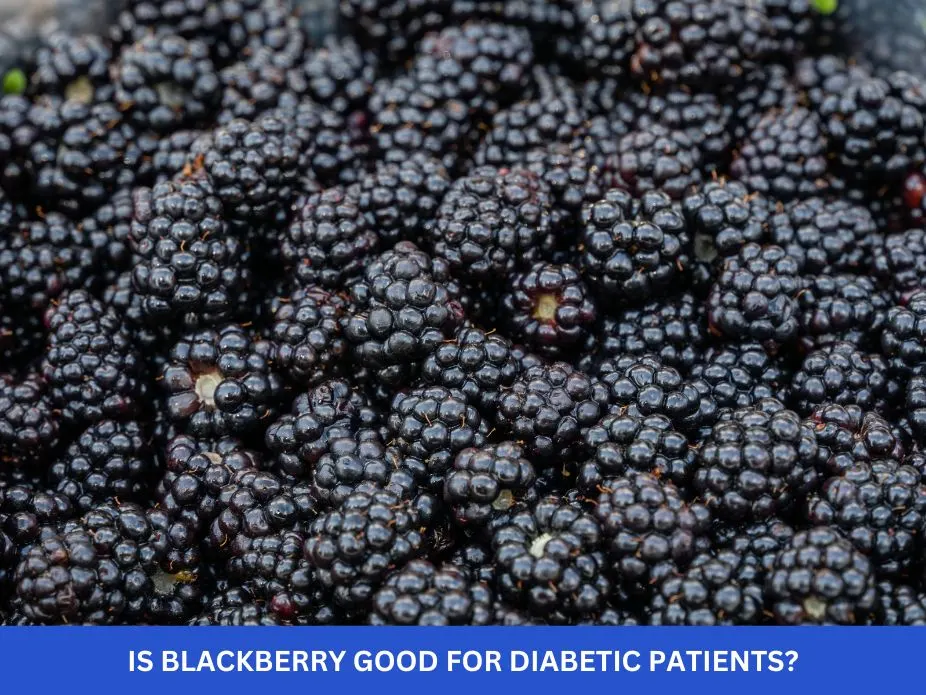Triglycerides are a type of fat found in the blood. While they are an essential source of energy for the body, high levels of triglycerides can increase the risk of heart disease and other health problems. Fortunately, there are several ways to decrease triglycerides and improve overall health. In this article, we will explore ten effective strategies that can help lower triglyceride levels and promote better well-being.
Understanding Triglycerides and Their Impact on Health
Before diving into the various ways to decrease triglycerides, it is important to have a clear understanding of what triglycerides are and why lowering their levels is crucial for good health.
Triglycerides are a type of fat that the body stores for energy. They are formed when the body consumes excess calories, particularly from foods high in carbohydrates and fats. Triglycerides are stored in fat cells throughout the body and are released when the body needs energy between meals.
While triglycerides are a natural part of our metabolism, high levels can be harmful. Elevated triglycerides are often a result of an unhealthy lifestyle, including poor diet and lack of exercise. Certain health conditions, such as obesity, diabetes, and hypothyroidism, can also contribute to high triglyceride levels.
Why Lowering Triglycerides is Important
Lowering triglyceride levels is crucial for maintaining good health and preventing future health problems. High triglycerides are often associated with several health conditions, including:
- Heart disease
- Stroke
- Obesity
- Diabetes
- Pancreatitis
In addition to these serious health risks, high triglyceride levels also contribute to the development of atherosclerosis, a condition characterized by the build-up of fatty deposits in the arteries. Atherosclerosis can lead to narrowed or blocked arteries, increasing the risk of heart attack and stroke.
Furthermore, it is important to note that triglycerides play a vital role in the body’s overall energy balance. When we consume food, our body breaks down the carbohydrates and fats into triglycerides, which are then transported through the bloodstream to be stored in fat cells. These stored triglycerides serve as a readily available source of energy for the body to use when needed.
However, when there is an excess of triglycerides in the bloodstream, the body struggles to process and store them efficiently. This can lead to the accumulation of triglycerides in various organs, such as the liver, which can impair their normal functioning. In turn, this can contribute to the development of conditions like non-alcoholic fatty liver disease (NAFLD), which is characterized by the build-up of fat in the liver.
Moreover, high triglyceride levels have been linked to insulin resistance, a condition in which the body’s cells become less responsive to the hormone insulin. Insulin resistance is a precursor to type 2 diabetes and can further complicate the management of blood sugar levels.
Therefore, understanding triglycerides and their impact on health goes beyond the surface level. It is not just about lowering their levels to prevent specific health conditions, but also about maintaining a delicate balance within the body’s energy metabolism and overall well-being.
The Role of Diet in Triglyceride Levels
Following a healthy diet is one of the most effective strategies for decreasing triglycerides. By making smart food choices, individuals can lower triglyceride levels and improve overall health.
Following a Healthy Diet
A healthy diet consists of a balance of nutrients, including carbohydrates, proteins, and fats. When it comes to decreasing triglycerides, the focus should be on consuming foods that are low in saturated and trans fats, sugar, and refined carbohydrates. Instead, individuals should opt for foods that are high in fiber, healthy fats, and lean proteins.
Foods that should be included in a healthy diet to decrease triglycerides include:
- Fruits and vegetables
- Whole grains
- Lean proteins such as fish, poultry, and beans
- Healthy fats like those found in avocados, olive oil, and nuts
It is also important to avoid or limit foods high in saturated and trans fats, such as:
- Processed meats
- Full-fat dairy products
- Butter and margarine
- Fried and fast foods
By following a healthy diet, individuals can not only lower triglyceride levels but also reduce the risk of other health problems such as obesity, diabetes, and heart disease.
Cutting Back on Sugars and Refined Carbohydrates
One of the key dietary factors contributing to high triglycerides is the consumption of sugars and refined carbohydrates. These include foods and beverages such as sodas, candy, white bread, pasta, and pastries. These sources of carbohydrates can quickly raise blood sugar levels and stimulate the body to produce more triglycerides.
To reduce triglyceride levels, it is important to limit the intake of sugary foods and beverages. Instead, individuals should focus on consuming complex carbohydrates, such as whole grains, fruits, and vegetables, which are digested more slowly and have a lesser impact on triglyceride levels.
Increasing Fiber Intake
Fiber is an important component of a healthy diet, and it plays a significant role in lowering triglyceride levels. High-fiber foods help to slow down the digestion of carbohydrates, reducing the amount of triglycerides produced by the body. Additionally, fiber helps to lower cholesterol levels, which can further reduce the risk of heart disease.
To increase fiber intake, individuals should aim to include a variety of fiber-rich foods in their diet, such as whole grains, legumes, fruits, and vegetables. These foods not only provide the body with essential nutrients but also help to maintain optimal triglyceride levels.
Choosing Healthy Fats
Contrary to popular belief, not all fats are bad for health. In fact, certain types of fats can actually help lower triglyceride levels and improve overall heart health. Healthy fats, such as those found in avocados, olive oil, nuts, and fatty fish like salmon, contain omega-3 fatty acids that have been shown to reduce triglycerides.
Replacing unhealthy fats, such as saturated and trans fats, with healthy fats can significantly lower triglycerides. This can be done by choosing lean protein sources, cooking with olive oil instead of butter, and opting for nuts and seeds as snack options.
Limiting Trans Fats
Trans fats are artificial fats that are found in many processed and fried foods. These fats not only raise triglyceride levels but also decrease levels of HDL (good) cholesterol. Therefore, it is essential to limit the intake of trans fats to decrease triglycerides and promote heart health.
To limit trans fats in the diet, individuals should avoid foods such as:
- Fast food
- Stick margarine
- Baked goods
- Fried foods
- Processed and packaged snacks
Reading food labels and choosing products that do not contain trans fats is an effective way to reduce their intake and improve triglyceride levels.
Lifestyle Changes to Decrease Triglycerides
The Importance of Regular Exercise
Regular exercise is an integral part of a healthy lifestyle and can help lower triglyceride levels. Engaging in physical activity on a regular basis helps to burn excess calories, decrease fat stores, and increase the production of HDL (good) cholesterol. This, in turn, reduces levels of triglycerides and lowers the risk of heart disease.
Individuals should aim for at least 150 minutes of moderate-intensity exercise or 75 minutes of vigorous-intensity exercise per week. Activities such as brisk walking, jogging, swimming, and cycling are all excellent options for lowering triglycerides and improving overall fitness.
The Effects of Alcohol on Triglyceride Levels
Excessive alcohol consumption is a major contributor to high triglyceride levels. Regular and heavy drinking not only increases triglyceride levels but also raises the risk of other health problems such as liver disease and pancreatitis.
To decrease triglycerides, it is important to limit alcohol consumption. Moderation is key, and individuals should aim for no more than one drink per day for women and two drinks per day for men. It is important to note that abstaining from alcohol altogether is the best option for those with high triglycerides or existing health conditions.
Managing Stress for Better Health
Stress has a significant impact on overall health and can contribute to an increase in triglyceride levels. When the body is stressed, it releases cortisol, a hormone that can lead to higher triglyceride production.
To manage stress and decrease triglycerides, individuals should incorporate stress-reducing activities into their daily routine. These may include yoga, meditation, deep breathing exercises, and engaging in hobbies or activities that promote relaxation.
Supplements and Medications for Triglyceride Control
Considering Supplements
In addition to making healthy lifestyle changes, certain supplements may be beneficial in lowering triglyceride levels. Omega-3 fatty acid supplements, such as fish oil capsules, have been shown to reduce triglycerides and support heart health. However, it is important to consult with a healthcare professional before starting any new supplement regimen.
Monitoring Medications and Health Conditions
For individuals with underlying health conditions, such as diabetes or hypothyroidism, it is essential to manage these conditions effectively as they can contribute to high triglyceride levels. Regular monitoring of medication usage and health conditions, along with regular visits to a healthcare provider, can help ensure optimal triglyceride control.
In conclusion, there are several effective strategies to reduce triglycerides and promote better overall health. By following a healthy diet, engaging in regular exercise, managing stress, and considering supplements or medications when necessary, individuals can lower triglyceride levels and decrease the risk of heart disease and other associated health problems. Implementing these ten ways to decrease triglycerides is a step towards a healthier and more balanced life.




